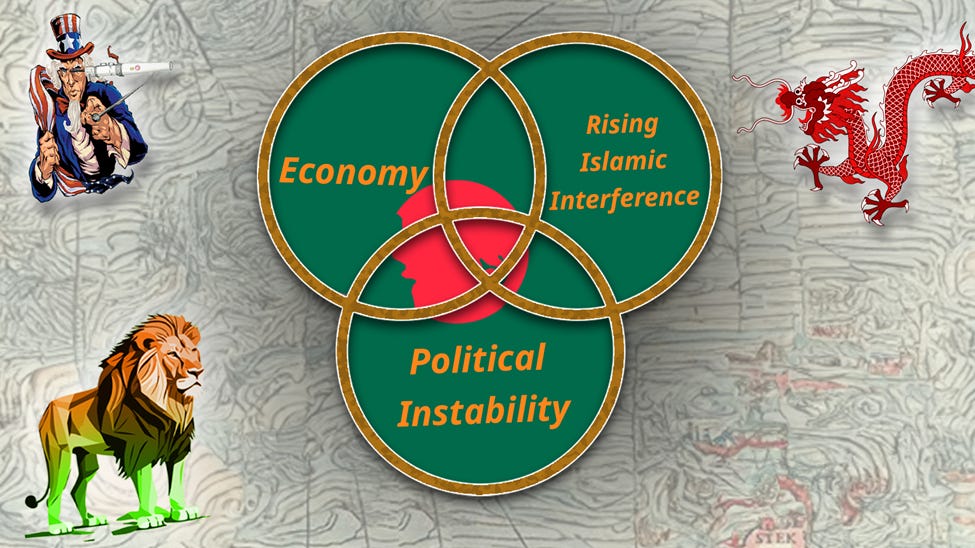How the world views Bangladesh?
As Bangladesh rises in prominence, global observers are closely scrutinizing its political and economic landscape. Despite its economic growth and significant geopolitical standing, Bangladesh's image is multifaceted, moulded by diverse national interests and international relations dynamics. Within the international community, the upcoming elections, political tensions, and alleged democratic abuses shape perceptions of Bangladesh.
The democratic principles and electoral process in Bangladesh have come under scrutiny by Western democracies due to allegations of electoral misconduct and political violence. These accusations have raised doubts about the country's commitment to democratic norms, and have generated concern among international observers. The 2014 and 2018 elections were marred by claims of fraud and intimidation, with opposition parties asserting that the results were neither credible nor legitimate. The U.S., in particular, has pressured the Awami League-led government to uphold these norms and ensure free and fair elections while standing against perceived authoritarian tendencies. A central focus is on the lead-up to the Bangladeshi elections, where there has been an escalation of political violence and growing concerns about the erosion of democratic standards. This narrative indicates an international perception of the Bangladeshi government potentially veering away from these democratic norms.
The United States' stance towards Bangladesh seems also motivated by geopolitical concerns, suggesting that Biden administration views Bangladesh as a proving ground for its initiative to revitalize democracy and human rights and counter China's growing influence.
Within the Asian context, India and China have substantial stakes in the trajectory of Bangladesh's future, albeit with differing motivations and strategies. India, due to its historical, cultural, and geographical ties, has traditionally had a vested interest in Bangladesh's stability and development. However, in recent times, it seems to have adopted a more hands-off approach in its bilateral relations, signalling a possible strategic recalibration.
Alternatively, China has sought to increase its influence in Bangladesh—part of its much larger Belt and Road Initiative to expand its geopolitical reach. By extending substantial financial support in the form of Official Development Assistance and Other Official Flows, China has positioned itself as Bangladesh's single largest development partner. The influx of Chinese investments has largely been met with positive public opinion, making China a significant player in Bangladesh's domestic and international affairs.
Geopolitical considerations further influence the global views of Bangladesh. Its strategic location, between South and Southeast Asia, places it at the heart of potential geopolitical contestations in the Indo-Pacific region. This significance is augmented by the escalating US-China rivalry and the rise of India as a major regional power. Bangladesh's emerging geopolitical role hints at its potential as a pivotal player in regional dynamics and global policies.
From an economic outlook, Bangladesh signifies boundless opportunities. As the second-largest exporter of ready-made garments after China, its textile industry is a major contributor to its economic growth. This feature has not been lost on economic giants like the U.S. and China, who both see Bangladesh as a valuable market and potential partner in their respective economic strategies.
This lack of consensus among major global players reflects the inherent tensions and competing interests at play. Bangladesh's unique geostrategic position, situated between South and Southeast Asia, has made it a focal point for power competition and regional dynamics.


